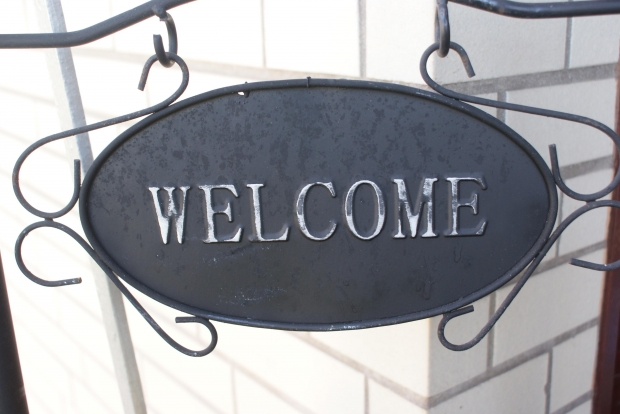including single people in the church: unity or affinity?
When I told the leaders at my church that single people were not being included in the big, regularly-gathering meetings that happened during the week, they apologized and said they'd try to make some changes. The next week, they did make a few changes in the bulletin announcements. The marriage announcement said, If you're married or want to be married, you can come.
The moms group announcement said, If you're a mom, or want to be a mom, you can come.
A few single people called me that week in tears. The additions made it sound like "if you're the real thing, or a pathetic wannabe, you can come."
We are not wannabes. We are grown-ups, too. We are your equals. We have different life circumstances than you do, but they are not inferior to yours. They're just different.
I think we can agree that adding "wannabe" clauses to the groups is not a valid way of including single people in our churches. So what options do we have?
We have two choices when it comes to how we create space for single people. To put it simply, we can embrace unity or affinity.
Affinity is the way most churches are right now. There are groups divided by demographics, and you must meet set  requirements in order to join. There's a group for moms of preschoolers. For married people who want stronger marriages. For baby boomers. For working men. The list goes on and on and on...
requirements in order to join. There's a group for moms of preschoolers. For married people who want stronger marriages. For baby boomers. For working men. The list goes on and on and on...
It's great for people who meet the criteria. But the people who do not meet the criteria are left standing out in the cold.
If we continue to structure churches like this, there will be an ever-increasing need to create more groups with more criteria to include (and exclude) more people.
I like to think of Jesus and the church as a big feast. Right now, we have chairs around the table that are reserved for specific groups of people. If we continue to do this, the only option we have is to add more chairs to the table.
If you thought it was a stretch to create a singles group at your church so single people have a place to fellowship, wait til you get requests to start groups for infertile married women who aren't single, but can't go to the moms group. And the divorced people. And the 35-50 year olds who are too old for the college group but not old enough for the silver-haired seniors groups.
The more groups we have, the more groups we will continue to need.
We can keep adding chairs to the table until everyone has their own crowded place at the table, where everyone's vying for space.
OR. We can pick the second option. We can choose unity instead of affinity.
 We can knock all the chairs away from the table. No more name tags, no more reserved seats, no more elbowing for more room. Just knock all the chairs away and say, "Everyone's welcome. Everyone can have equal access to this table. Everyone belongs."
We can knock all the chairs away from the table. No more name tags, no more reserved seats, no more elbowing for more room. Just knock all the chairs away and say, "Everyone's welcome. Everyone can have equal access to this table. Everyone belongs."
And this, I believe, is the true gospel. It's the all-encompassing, all-embracing love of God that includes each of us and gives us the inspiration (and, for the reticent, the obligation) to include each other.
For the pastors who balk at us talking about starting singles groups, or for the pastors who want to herd us into the singles group because there is no other place for us, here's the thing. We wouldn't need to create a place to be included if we weren't being excluded at the broader level.
So I say, open up the doors. Knock down the chairs. Create groups where everyone belongs. Acknowledge single peoples' needs and valuable contributions. Celebrate our lives the same way you celebrate babies and marriages. Value us the way married couples are valued. Talk to us from the pulpit and use illustrations that relate to our lives instead of always expecting us to translate your marriage metaphors into a language we can relate to and understand.
Go back to your Bible and read how, in the early church, they all came together and ate together and belonged with one another because Jesus abolished labels and categories. If there's no longer Jew or Greek or slave or free person, I'm pretty sure we can stop with the married or unmarried labels, too.
Do single people and married people have different needs? Sure, sometimes we do. Sometimes we need someone who's walked in our shoes and can give us wisdom they've gathered along the way. But I would argue that if we are in close community with each other, we'll rub shoulders with wise people like us, and we can have those conversations on the side.
I say it's time to stop marching to the jaded, predictable beat of affinity, and let the beautiful, wild, radical, unexpected dance of unity carry us away.
***
Do you have any additional thoughts? Do you have any ideas for what this could (or should) look like in your current community?
